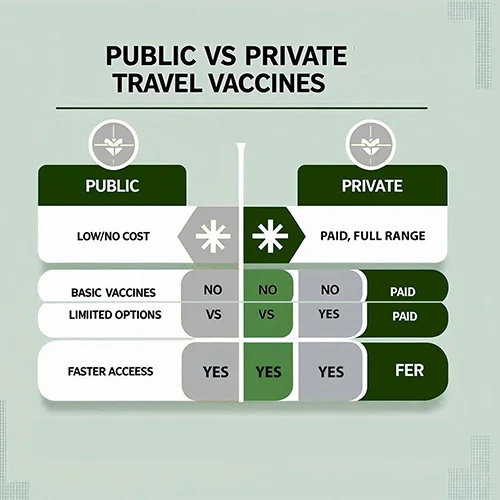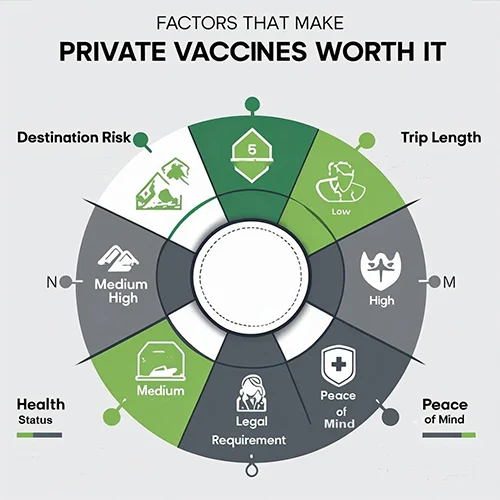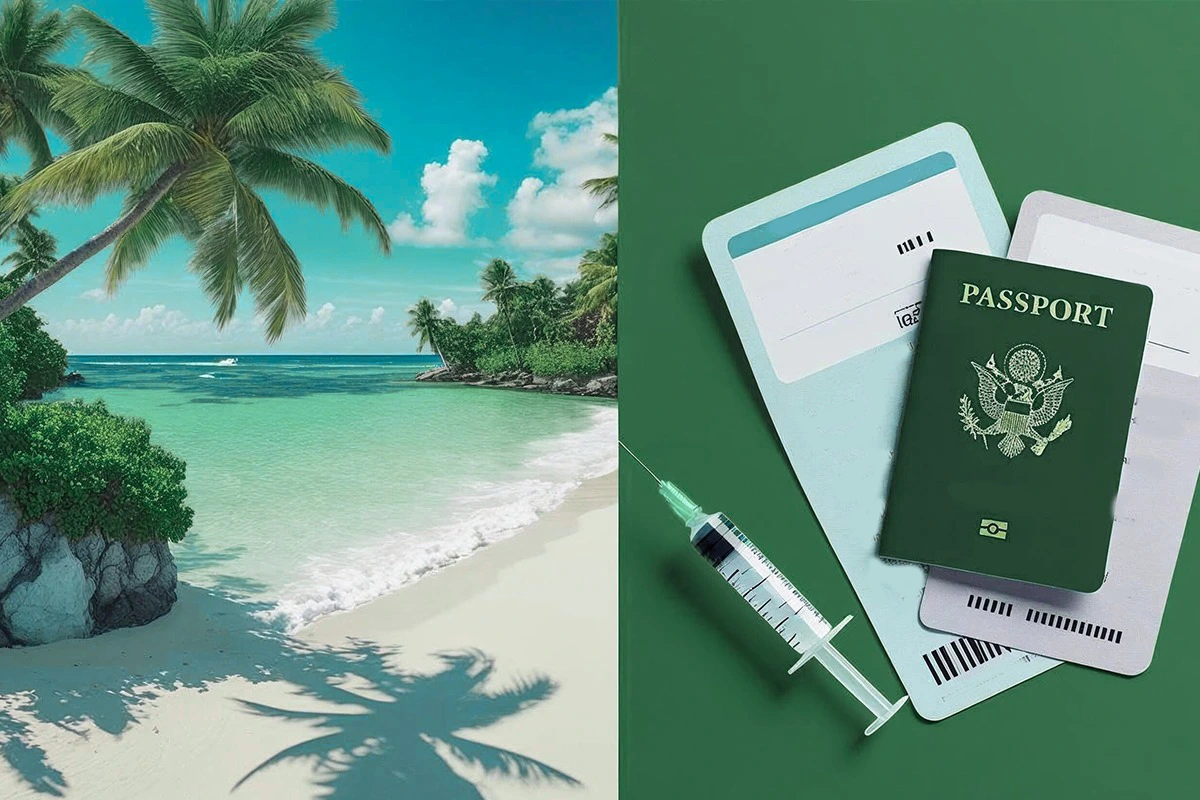It could be a very thrilling experience driving across the ocean – the time to explore new cultures, foods and sceneries. With the excitement comes the responsibility of protection of your health. Vaccination is one of the important details of preparation that should beckon many destinations. Other vaccines may be accessed through a public healthcare system. But other ones require being purchased privately, which also may be really costly. Private travel vaccines pose a very significant question: are the vaccines worth it?
Why You Should Care About Travel Vaccines
Otherwise, when you travel, you could become sick because of the disease, which is a rare problem in your native country. Diseases such as yellow fever, Japanese encephalitis, rabies, and typhoid are still common in most areas in the world. Such infections may be life-threatening in certain instances. These infections pose a greater risk when one travels to rural regions. Where there is a lengthy stay or activities that involve outdoor activities.
One of the best means of prevention against the diseases is the vaccines. They not only keep you safe on your voyage but also ensure that surrounding persons are not infected once you get back home. In some instances, evidence of vaccination is mandated as a legal means of entering into some countries, e.g., a yellow fever certificate to enter into some areas in Africa and South America.

Gap Between Public and Private Options
Routine vaccines (tetanus, diphtheria, polio, and measles) are given freely or at low cost in most developed countries by means of the public health service. Nonetheless, specific vaccines related to the type of travel, such as a yellow fever vaccine, Japanese encephalitis, or a pre-exposure shot of rabies, are not always included. That is where the role of the private clinics comes in, with full provision of the travel vaccines, of course, with the cost attached.
Prices are highly diverse and depend on the vaccine and your local location as well as the clinic. For example:
- Yellow fever: (UK) 60-85 (or) (US) 150-250
- Pre-exposure (Rabies)
- Japanese encephalitis: approx. 200-250 to do the course
To a frequent traveller or a family, such expenses can be summed easily.

Considerations which would be exploited
1. Level of Destination Risk
Today, the matter of vaccination may become a paramount safety measure in case you are travelling to a country where certain disease rates are high. As an analogy, Japanese encephalitis is highly unlikely but can be deadly, and it is strongly advised to be vaccinated in case you are in rural Asia travelling.
2. Trip length and type Length and Type of Trip
A weekend in a tourist destination might not demand a person to get as manyvaccinations as a six-month volunteer assignment in rural Africa.
3. Health Status
Individuals with compromised immune systems, pregnant people, or older adults could experience worse effects of having some diseases. Prevention in this case is all the more vital.
4. Legal Requirements
Certain countries require some vaccines before entry into the country. You can be refused boarding or entry without them, whereby you might end up losing all the money you have spent on your trip.
5. Peace of Mind
To some travellers, the comfort of being assured that they are insured is all worth its money. Medical issues have the potential to ruin a vacation, but immunisations eliminate the fear.
Striking a Cost Versus Protection Balance
It is factual that private travel vaccines are costly, and this may discourage the travellers. But it is significant to compare that cost with possible outcomes of being seriously ill in the foreign country. Healthcare abroad may prove expensive and difficult to obtain and, in certain instances, not as useful as prevention.
One of the best plans would involve being prepared:
- See whether you are already provided with protection through past immunisations.
- Depending on your itinerary, prioritise high-risk diseases.
- Compare the price range in the various private clinics.
- Book in advance to prevent last-minute premiums as well as to have time to finish multi-dose courses.
Conclusion
Travel vaccinations are a necessity for your own health, your journey and possibly your own life. The upfront payment may be high, but the more lasting advantages can easily surpass the price in terms of keeping you healthy and safe as well as making your entry into the new country go as smoothly as possible.
Missing a vaccination to save cash in case you go to a location with a high possibility of health risk or with compulsory vaccinations will be false economy. In travel health, prevention is cheaper, safer, and much less stressful than cure, but the benefits of prevention extend well beyond these areas.

Leave a Reply